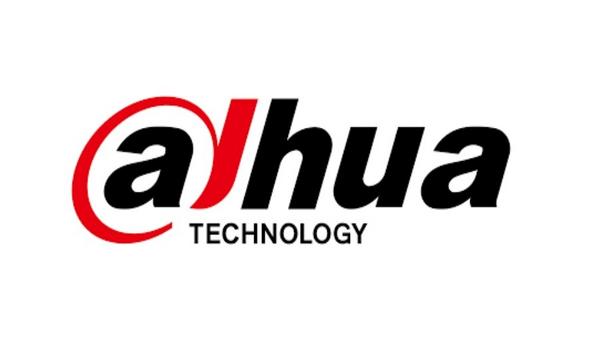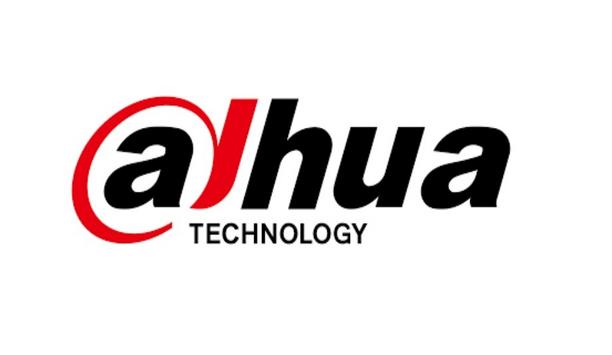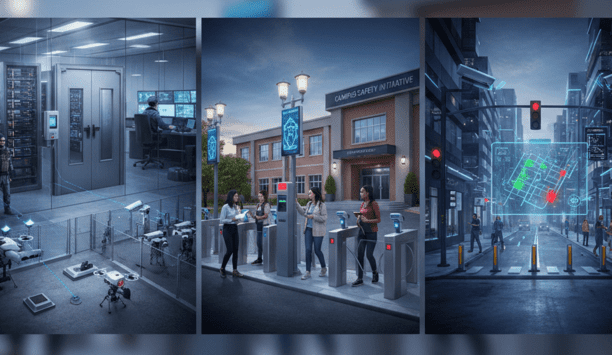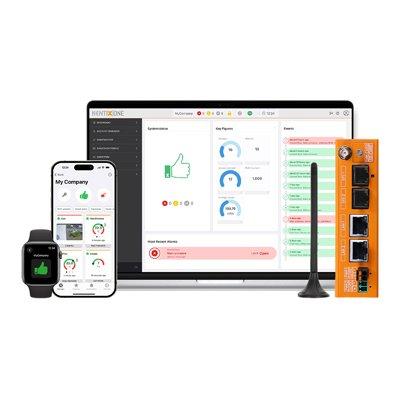The UK Government has set out an ambitious ten-point plan, known as the green industrial revolution, with an aim “to forge ahead with eradicating its contribution to climate change by 2050.” This makes our government the first major economy to embrace such a legal obligation.
Green recovery
Acknowledging climate change and meeting net-zero is a demanding challenge especially for those affected by the pandemic. But the UK Government, with the launch of its aspiring strategy, is investing everything in its power to promote a ‘green recovery.’
Here, Reece Paprotny, Commercial Manager and Sustainability Champion at Amthal, highlights how the fire and security industry has an opportunity to use the current recovery period to explore its own sustainable journey and embrace the significance of environment, economic and social collaboration, transparency, and accountability.
Employing sustainable technologies
Pressure is mounting on construction to find ways to reduce emissions and help meet net-zero targets
The perception is that COVID-19 presents a once-in-a-lifetime opportunity to re-write the existing rulebook. This is riding on the significance of changing public support for more environmentally friendly living opportunities, with associated cost savings, efficiencies, and cleaner industries.
Innovative sustainable technologies are the key to kickstart this route to success. Nowhere can this be seen more than in the built environment, which currently contributes to 40% of the UK's carbon footprint.
Pressure is mounting on construction to find ways to reduce emissions and help meet net-zero targets. This is through the entire life cycle of a building, to reduce their impact on the environment from planning stages, through build and demolition.
Building the right environment
By creating the right policy environment, incentives for innovation and infrastructure, the Government can encourage companies to seize the sustainable opportunities of new technologies and value chains linked to green sectors.
They can accelerate the shift of current carbon-intensive economic and industrial structures onto greener trajectories, enabling the UK to meet global climate and development goals under the Paris Agreement on climate change and the 2030 Agenda for Sustainable Development.
Transparent working practices
Each industry sector is expected to engage and pledge its support to achieve the significant deadlines. Every company can make a difference, even with small steps towards a sustainable future.
So whilst elements such as safety and security represent just one component of building the right sustainable environment, it paves the way to opening up our sector to greater efficiencies, transparent working practices, and encourages collaborative use of resources.
Sustainability in security
The security sector has a significant opportunity to incorporate ‘going green’ into its practices
In fact, the security sector has a significant opportunity to incorporate ‘going green’ into their processes, and practices. This is right from product lifecycles to more environmentally friendly work practices when it comes to maintenance and monitoring services.
When integrating environmentally friendly practices, starts with the manufacturing and production of the wide variety of systems in operation for the security sector. And some certifications and guidelines can be achieved, such as the ISO 14000 which looks into eliminating hazardous materials being used which in turn will reduce carbon footprint.
Upgrading supply chain process
Observing the complete supply chain and working with partners to reduce unnecessary travel, shipments, and transportation of products, can all contribute and create sustainable processes.
In the maintenance and monitoring of products, it is essential installers and security specialists consider their own environmental impacts. Simple changes such as switching company vehicles to electric options for site visits can make a significant difference to climate change and improving air quality.
Presenting sustainable ways of disposing of products at the end of their natural lifecycle is key to change in our sector. This is especially in the security industry where many customers will need a complete overhaul of outdated solutions or need systems upgrading due to changing threat levels.
Sustainable evolution
Progress is being made, specifically in the fire and security industry, in its sustainable evolution.
Businesses are trying to develop a reputation for “sustainability” or “good corporate citizenship.” And it has gone well beyond the theory to the practical, where companies recognise activities have an impact on the environment and are also reviewing the social and economic influences.
Three pillars of sustainability
In a recent interview, Inge Huijbrechts, the Global Senior Vice President for safety and security and Responsible Business at Radisson Hotel Groups sees her vision to combine safety, security, and sustainability.
Inge focuses on three pillars, namely, Think People, Think Community, and Think Planet. Think People means that we “always care for the people in our hotels and our supply chain.” So, in outwards communications, safety and security were always part of the Think People focus area.
Think Community is caring and contributing in a meaningful way to communities where we operate. Finally, Think Planet makes sure that “our footprint on the environment is as light as it can be in terms of energy, water, waste, and carbon, and making sure that we incorporate sustainability into our value proposition.”
Moving forward
Apprenticeship schemes are integral to ‘think people’ and have a role to play in the social impact on the security industry
There are immediate actions that can be taken by companies in the security industry to support sustainable development, working right from within a company to supporting industry-wide initiatives.
From a social perspective, at a foundation level, “Think People’ can see the Living Wage Foundation as an example of a commitment to a team. This is for businesses that choose to go further and pay a real Living wage based on the cost of living, not just the Government minimum.
Apprenticeship schemes are also integral to ‘think people’ and have a pivotal role to play on the social impact on the security industry. It addresses the sector-wide issue of finding employees with the right mix of skills to collaborate and meet discerning consumer demands for increasingly smart security solutions for homes and businesses.
Impact of the full lifecycle of products
From an environmental view, or ‘think planet,’ we need to collectively look at all elements of our industry, with a desire to analyse the impact of ingredients used, supply chain, or manufacturing alone, and also consider the full lifecycle of our selected products from creation to end of life.
As Jamie Allam, CEO Amthal summarises, “This is a long-term, sustainable investment in our people, our products, and our business based on our values.”
“When put together, a social team which feels empowers and operates in environmental optimum working conditions is in a position to provide a great experience to our customers, creating an economic positive difference. It forms the basis of a sustainable sector vision for the security industry-wide to adopt.”
Taking action
Amthal is taking action based on the ready-made universally agreed UN 17 Sustainable Development Goals. Also known as Global Goals, these are at the heart of the 2030 Agenda for Sustainable Development, adopted by all United Nations Member states. This agenda is a plan of action for people, the planet, and prosperity.
By being an early adopter, we believe we can engage with customers, partners, and suppliers on these issues and generate opportunities to innovate for mutual and industry sector benefit. Together, we can contribute to building a more sustainable security sector and future, and contribute to the UK Government’s green industrial revolution.
Discover how AI, biometrics, and analytics are transforming casino security


























